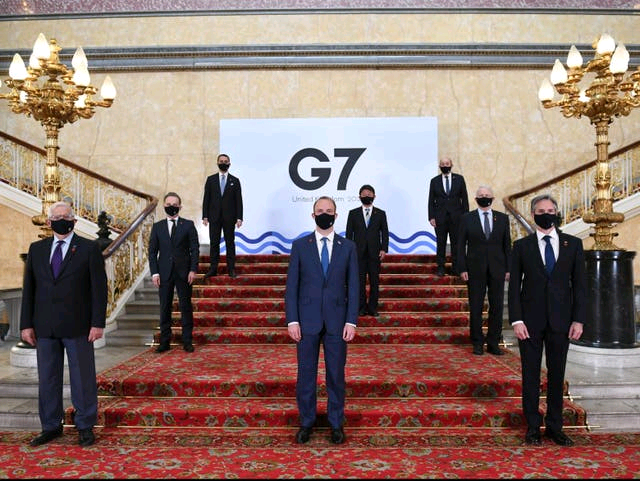London calling on China to “respect human rights and fundamental freedoms”, but drawing back from any decisive action if that fails to take place.

Economic considerations, as well as apprehension that even strong language could trigger retaliation by Beijing, led to some member states of the Group successfully limiting the scope of censure.
One of the key points of the summit had been a projected alliance of democracies to counter autocratic regimes with China and Russia seen as the main adversaries. But a number of European states are said to have refused calls for a more robust stance by the US,
Support for Taiwan, a country facing aggressive Chinese military exercises and threats of invasion, was also muted. The G7said it supported Taiwan’s participation in World Health Organisation (WHO) forums and the World Health Assembly, but there was no criticism of Beijing’s actions.
The Group did, however, condemn the Chinese government for “human rights violations” in Xinjiang and Tibet as well as China’s pursuit of an expansionist strategy through “arbitrary, coercive economic policies”.
The Chinese government has been accused of promoting debt dependency in the developing world through its ‘belt and road’ construction scheme, taking over territories at times when the borrowing countries fail to pay back loans.
Foreign Secretary Dominic Raab said: “I think China is more likely to need to, rather than react in anger, it is more likely going to need to take a look in the mirror and understand that it needs to take into account this growing body of opinion, that thinks these basic international rules have got to be adhered to.”
The UK, as the host, had invited Japan, India, Australia and South Korea, all countries involved in varying degrees of confrontation with China, to take part in the summit.
In the event the Indian foreign minister, Subrahmanyam Jaishankar had to participated virtually after coming into contact with the suspected cases of covid in his country’s delegation, although he has not tested positive himself.
A number of those taking part spoke of how refreshing this summit had been after the acrimony and unpleasantness introduced in previous years by Donald Trump. There was also widespread approval of Britain’s decision to hold an ‘in person’ conference rather than a virtual one.
Support InfoStride News' Credible Journalism: Only credible journalism can guarantee a fair, accountable and transparent society, including democracy and government. It involves a lot of efforts and money. We need your support. Click here to Donate
